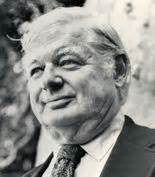A Quote by Ron Chernow
I think there's a tide that tends to carry historians back to the past.
Related Quotes
Most academic historians accept that historians' own circumstances demand that they tell the story in a particular way, of course. While people wring their hands about 'revisionist' historians; on some level, the correction and amplification of various parts of the past is not 'revisionism' as it is simply the process of any historical writing.
Our American past always speaks to us with two voices: the voice of the past, and the voice of the present. We are always asking two quite different questions. Historians reading the words of John Winthrop usually ask, What did they mean to him? Citizens ask, What do they mean to us? Historians are trained to seek the original meaning; all of us want to know the present meaning.
"People can't die, along the coast," said Mr. Peggotty, "except when the tide's pretty nigh out. They can't be born, unless it's pretty nigh in - not properly born, till flood. He's a going out with the tide. It's ebb at half-arter three, slack water half an hour. If he lives till it turns, he'll hold his own till past the flood, and go out with the next tide."



































